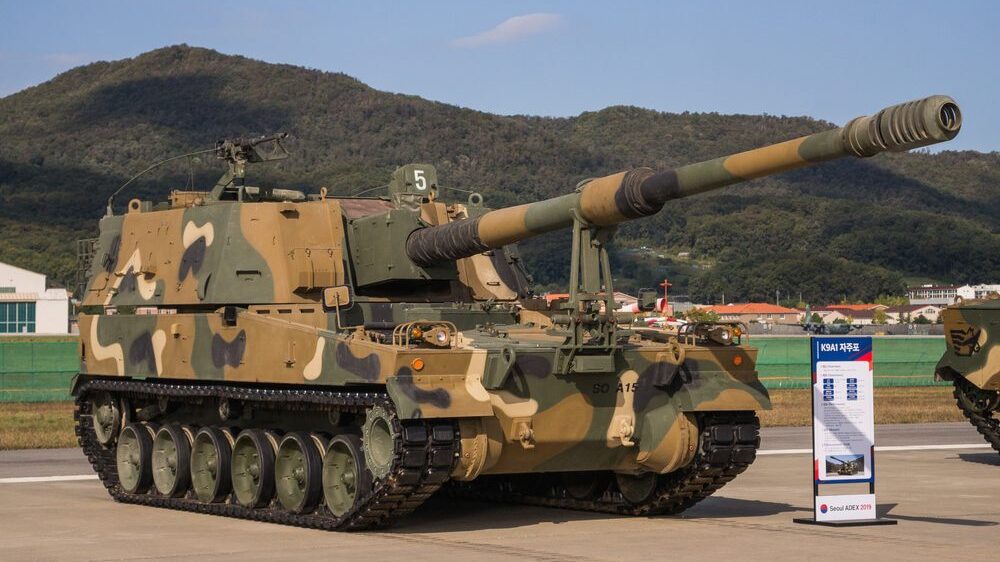
South Korean K9 Thunder 155mm self-propelled howitzer.
Photo: Flying Camera / Shutterstock.com
Members of the European Parliament are calling for stricter rules and more transparency following a revelation that some countries misuse the European Peace Facility’s (EPF) funds. The countries in question have applied for reimbursement for old weapons and ammunition sent to Ukraine but billed them as their modern equivalents.
As we wrote on Tuesday, March 28th, Estonia and five other EU member states were accused of abusing the EPF system, based on classified documentation obtained by Politico. While there’s nothing illegal in the practice (at least so far), it immediately caused outrage in Brussels, since—while other member states were content with donating outdated technology for free—the accused countries were essentially modernizing the equipment of their armed forces at the expense of the entire bloc.
Meanwhile, Estonia—the member state which applied for the most funds—insists it has been strictly adhering to all the rules. Estonia simply has been claiming “recovery value” for its donations, and says they could not replace their old Soviet technology with weapons of the same era even if they tried.
The problem is that Estonia is right. The country has not stepped out of line. The rules of the reimbursement scheme, hastily put together by the European Commission and rushed through the Council earlier this month, did not specify any of these subtleties. Instead, the EU expected countries to apply for the amount their donations were actually worth.
But trust has its limits, it appears. Now MEPs from mainly leftist parties, such as the S&D, the Greens, and Renew (which is a bit ironic, since Estonia’s ruling Reform party also belongs to Renew) are calling for the Commission to close the loophole in the legislation. According to them, a set of standardized rules should be introduced immediately within the European Peace Facility’s mechanism, including a common calculation methodology, in order to guarantee a level playing field through transparency and uniformity.
“I call on the member states to establish the current value as a binding basis for calculation. Brand new equipment must be financed via other instruments,” Greens budget committee member Rasmus Andresen said, adding that he believes the core problem is that EPF is only an intergovernmental, not a supranational, body—therefore it needs more parliamentary oversight.
At the same time, Estonia attacked Politico over the report, accusing the publication of spreading lies and misinformation. Kusti Salm, one of the country’s top defense chiefs, even said that the article was meant to “create a wedge between allies and reduce support” for Ukraine.
Salm: "Estonia sent Ukraine more than 400 mln € of aid in replacement value, got back 150 mln €."
— Estonia Votes🇪🇪 (@EstoniaVotes) March 28, 2023
Salm says that the aim of the article is to create a wedge between allies and reduce the support for sending aid to Ukraine.
Granted, that one quote about the old Strelas rockets, swapped for modern Stingers through the EPF, may not have been correct. But after further inquiry, Estonia did admit that it did a similar exchange, trading D-30 howitzers from the 1960s for modern Korean K9 ones.
